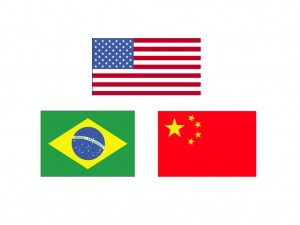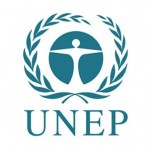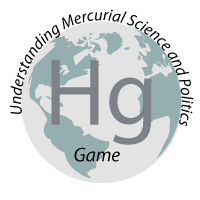Due to Sunderland’s past work at the EPA, she was a wealth of knowledge not only in mercury science but also mercury regulation. She showed us the Mercury Game, developed by Leah C. Stokes, Dr. Noelle E. Selin and Dr. Lawrence E. Susskind at the Massachusetts Institute of Technology. Click here for official game rules and regulations. The game website also contains additional information pertaining to both mercury science and regulations.
In a follow-up discussion we played an abbreviated version of the game (the full game is designed to take 3-4 hours). The game is a negotiation simulation designed to highlight the role of science in international environmental policy making, but the understanding can be bridged to any area of science policy. In our game we focused on three countries; China, Brazil, and USA. Click on the country name for worksheet from the game detailing that countries position.
 The game focused on four issues:
The game focused on four issues:
- Institutional Form for Future Action
- Atmospheric Emissions
- Demand for Mercury Used in Products and Processes
- Artisanal and Small Scale Gold Mining
Click here for the International Mercury Assessment worksheets containing information about these issues.
We only focused on the third issue, demand for mercury, but even in our brief discussion it became clear that creating global regulations was very difficult. The three countries that were focused on all had very different economies, so the subsequent demands for mercury were also very different. When mercury is a necessary component of what allows your economy to grow, there is little incentive to regulate its use.

 For all of the details on mercury regulations here in the United States, see the EPA website. We had a more difficult time finding additional information pertaining to China and Brazil. The United Nations also has mercury regulations and information, although as we mentioned from our own experience, global regulations are more difficult to come by. We also realized how much more is at stake than just science. It’s often really easy to sit back and say that this is what should be done as a scientist, however, there is a lot more that goes into these regulations that data and graphs.
For all of the details on mercury regulations here in the United States, see the EPA website. We had a more difficult time finding additional information pertaining to China and Brazil. The United Nations also has mercury regulations and information, although as we mentioned from our own experience, global regulations are more difficult to come by. We also realized how much more is at stake than just science. It’s often really easy to sit back and say that this is what should be done as a scientist, however, there is a lot more that goes into these regulations that data and graphs.
After seeing Dr. Sunderland’s talk, the need for global mercury regulations became clear. Due to the linkage between mercury and carbon, mercury is not only a local issue because of how it is transported around the world! Hopefully, thanks to speakers like Dr. Sunderland as well as games such as the Mercury Game, we can create a better working environment between scientists and politicians.
No pun intended. Thanks for your interest!


Leave a Reply